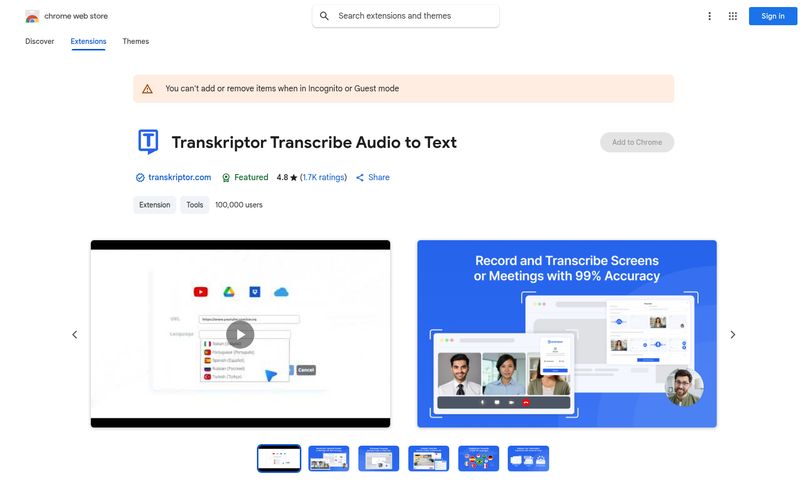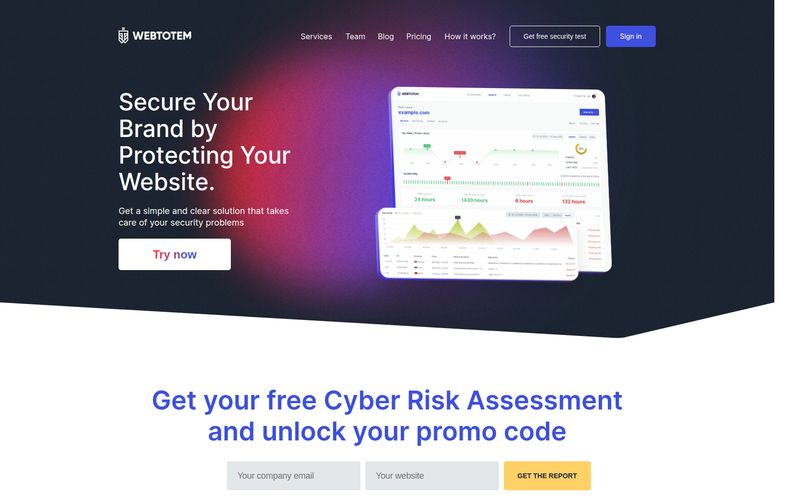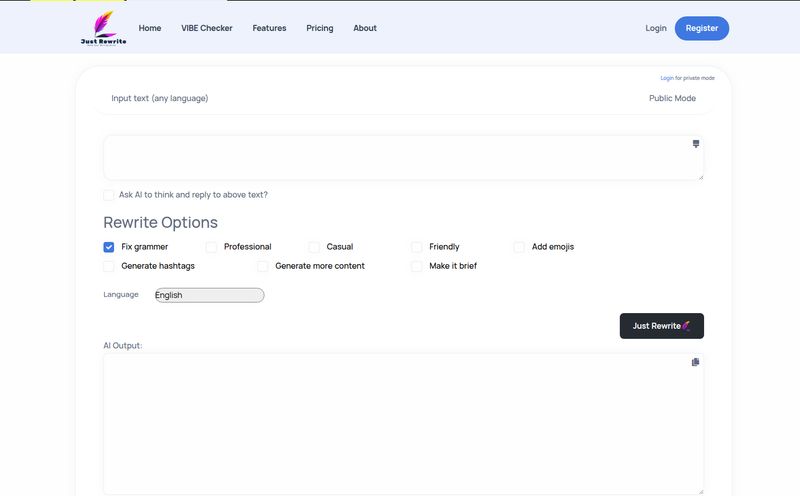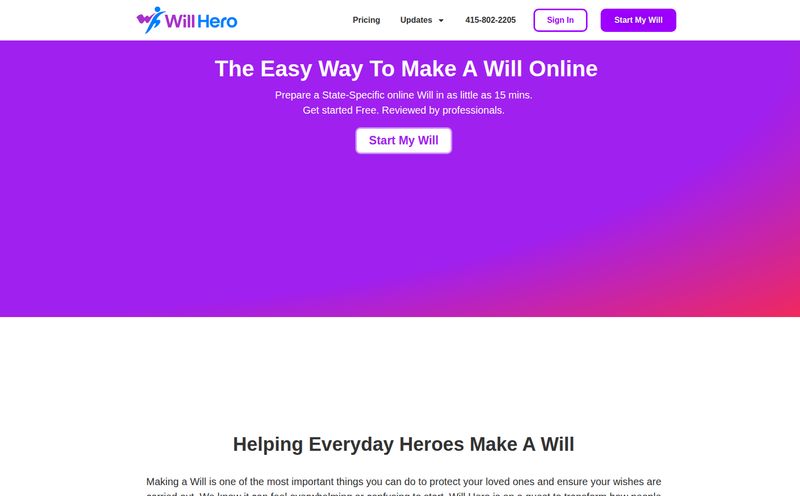Fundraising is a nightmare. It’s a full-time job on top of your actual full-time job of building a company. You spend weeks polishing a pitch deck, only to send it into a black hole of investor inboxes, praying for a reply that isn’t a generic, soul-crushing “no.” I’ve been in the startup trenches for years, watching brilliant founders with great ideas get completely stonewalled by the opaque, frustrating world of venture capital. It’s a gatekept club, and finding the secret handshake feels impossible.
So, when a tool like OpenVC pops up on my radar, claiming to use AI to fix your pitch deck and then connect you with over 5,000 investors—for free—my cynical blogger brain immediately kicks in. A fundraising cheat code? Yeah, right. But my curious side, the one that loves a good growth hack, had to see what was up. I’ve spent some time digging into it, and honestly, what I found is... pretty compelling.
What Exactly is OpenVC?
Think of OpenVC as two things in one. First, it’s your brutally honest, AI-powered pitch deck coach. You know, the one who will tell you your “Market Size” slide is a mess without sugarcoating it. Second, it’s your digital rolodex, a massive, searchable database of VCs and angel investors. A real black book of contacts.
The core idea is simple: you upload your pitch deck (as a PDF), and in about 30 seconds, the AI spits out a detailed review. It gives you a slide-by-slide analysis, looking at your content, your structure, and even your design. It's designed to help you build a top-tier deck before it ever lands in a real investor's inbox. No more guessing if your story makes sense. You get instant, actionable feedback. For any founder who’s ever stared at their own deck for so long they can no longer tell if it's genius or garbage, this is a breath of fresh air.

Visit OpenVC
The Free Lunch: What You Get with OpenVC's Free Plan
Okay, this is the part that made me raise an eyebrow. OpenVC screams from the rooftops that 90% of its features are free. Forever. In a world where every SaaS tool wants your credit card before you can even see the dashboard, that's a bold claim. And for the most part, they deliver.
For a bootstrapped founder running on ramen and dreams, the free plan is ridiculously generous. You get unlimited searching of their investor database, a built-in CRM to track your conversations (a godsend, trust me), and analytics to see who’s actually viewing your deck. You can share your deck with a link, add team members, and even set up automatic follow-ups. They even have a “Fundability Test,” which is a neat little quiz to see how ready you are to raise capital. It’s more than just a teaser; it’s a genuinely functional set of tools you can use to manage your entire fundraising process from start to finish without paying a dime.
Putting the AI Pitch Deck Review to the Test
This is the main event, right? The AI Deck Doctor. I’ve seen a lot of “AI” tools that are just fancy templates, so I was skeptical. The promise is that it helps you build a deck that’s in the “top 1%.”
The process is dead simple. Upload your PDF, wait a moment, and boom—report's ready. The feedback it provides is surprisingly detailed. It doesn't just say "this slide is bad." It points out things like, "Your problem slide lacks a clear, relatable user story," or "Your 'Go-to-Market' strategy is too vague; investors want to see specific channels and initial customer acquisition tactics." It's like having a pre-flight checklist for your pitch.
Now, let's be realistic. The AI is only as good as the models it was trained on. It’s not going to have the nuanced, industry-specific insights of a seasoned partner at Andreessen Horowitz. But that’s not the point. The point is to catch the 80% of common mistakes that get your deck thrown in the trash immediately. It’s an incredible safety net to ensure you're not making rookie mistakes, and it’s a thousand times better than sending your first draft out into the wild.
Should You Pay for OpenVC Premium?
So if the free plan is so great, why would anyone pay for Premium? Well, this is where OpenVC shifts from being a helpful tool to a potential fundraising weapon. The premium tier is for founders who are done practicing and are ready to go to war.
The pricing is pretty straightforward: $99 per month or a much more palatable $299 per year. For a company actively trying to raise millions, that annual fee is basically a rounding error.
The Allure of Better Outreach and Smarter Filters
The biggest premium perk is firepower. You get 5x more outreach, but more importantly, you get access to 10 hyper-specific investor filters. This is huge. Instead of just searching for “FinTech VCs,” you can filter by their average check size, whether they lead rounds, and other critical data points. This stops you from wasting time pitching a seed-stage fund when you need a Series A lead. Time is your most valuable asset during a fundraise, and this feature alone could be worth the price of admission.
That 'Intro Finder' is a Bit Like Magic
This feature is really clever. You give it access to your inbox, and it scans your contacts to find people who can give you a warm introduction to investors on your target list. We all know a warm intro is 10x more effective than a cold email. Automating the discovery of these connections is just… smart. It's a growth hacker’s approach to networking.
Unlimited Deck Reviews and Masterclasses
With premium, you also get unlimited AI deck reviews. This is perfect for the iterative process of fundraising. You get feedback, make changes, and can immediately run it through the AI again. You also unlock a fundraising masterclass with a ton of video content to guide you. It's a nice addition that rounds out the offering.
The Good, The Bad, and The Realistic
So after all that, what’s the verdict? No tool is perfect, but OpenVC gets a lot right.
What I genuinely like is the democratization of it all. It gives founders who don't have a Stanford degree or an uncle in venture capital a fighting chance. The free AI review and the open investor database lower the barrier to entry significantly. The free CRM is the cherry on top.
Now for the not-so-good bits. Of course its not perfect. You have to remember that the AI review is a guide, not gospel. It can't understand the deep specifics of your niche like a human can. Also, while the investor network is massive, quantity doesn't always equal quality. You still have to do your own due diligence on each firm. It’s a marketplace, so expect some variance. Don't just spray and pray. That never works.
My Final Verdict on OpenVC
So, is OpenVC a fundraising cheat code? I'd call it more of a powerful study guide. It won’t take the test for you, but it’ll make sure you’re prepared, have the right materials, and know who’s going to be grading your paper.
For first-time founders, solo entrepreneurs, or anyone feeling lost in the fundraising maze, OpenVC is a no-brainer. The free version alone provides more value than some paid tools I’ve seen. If you're actively and seriously raising a round, the $299/year for Premium feels like a steal. The time it saves and the mistakes it prevents could easily be the difference between a successful round and six more months of ramen.
It’s a tool that evens the playing field. And in the often-lopsided world of startups and venture capital, that’s something worth paying attention to.
Frequently Asked Questions about OpenVC
- 1. Is OpenVC really free to use?
- Yes, a huge chunk of its features are on a "free forever" plan. This includes the investor search, a basic CRM, and deck analytics. The most powerful features, like advanced filtering and the Intro Finder, are part of the paid Premium plan.
- 2. How good is the OpenVC AI pitch deck review?
- It's an excellent starting point and a great safety net. It's trained to spot common structural and content mistakes that get decks rejected. It's not a substitute for a human mentor with deep industry knowledge, but it will absolutely make your deck better.
- 3. Can OpenVC guarantee I will get funding?
- No. No tool or person can guarantee that. Fundraising success depends on your team, your traction, your market, and a bit of luck. OpenVC is a tool to improve your materials and your process, dramatically increasing your odds of success.
- 4. Is the investor network on OpenVC legitimate?
- The network is large, with over 5,000 investors listed. However, it's an open platform, so you should always do your own research on any investor or fund you find. Verify their recent investments and thesis on their own website or through other sources like Crunchbase.
- 5. How does OpenVC compare to other fundraising platforms?
- OpenVC's unique strength is the combination of a free, high-quality AI pitch deck review tool with a massive, open investor marketplace and CRM. Some platforms are just databases, while others focus only on the deck. OpenVC tries to be an all-in-one solution for the early-stage founder.
- 6. What's the catch with the free plan?
- There isn't really a 'catch'. It's a classic freemium model. They give you enough value for free to be incredibly useful, hoping that once you see the power of the platform, you'll upgrade to Premium to accelerate your fundraise. It's a fair trade.
Ultimately, fundraising will always be a grind. But with platforms like OpenVC, at least it’s a grind where you feel like you have a map and a compass, instead of just wandering in the dark. Give the free version a spin—what have you got to lose?
Reference and Sources
- OpenVC Official Website
- OpenVC Pricing Page
- TechCrunch: How AI is Changing Venture Capital (Example authoritative link)



